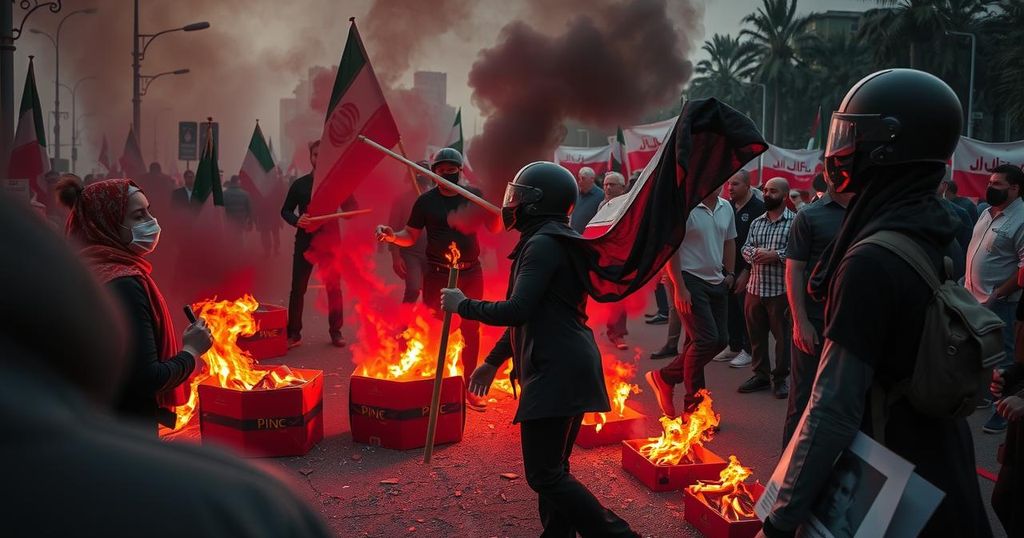Mass Protests Erupt Across Iran Amid Economic Crisis and Inflation

On December 29, widespread protests erupted across Iran, driven by economic grievances including inflation and high living costs. Merchants protested in Tehran’s Grand Bazaar, while retirees and workers in various cities demanded better pensions and working conditions. The protests reflect deepening dissatisfaction with the regime’s handling of the economy, amid warnings of potential hyperinflation and further unrest.
On December 29, a significant wave of protests and strikes swept across Iran, as citizens expressed their deep discontent regarding rising inflation, exorbitant prices, and deteriorating living standards. Various groups, including merchants, retirees, and workers, took to the streets demanding urgent economic reforms and accountability from the ruling regime. The Grand Bazaar in Tehran emerged as a key protest site, where merchants ceased operations to voice their grievances against the regime’s handling of the economic crisis.
The protests spread throughout numerous cities such as Ahvaz, Shush, Isfahan, and Qaemshahr, with retirees rallying for increased pensions to cope with the excessive cost of living. The demonstrators voiced their frustrations with slogans like “Enough with the warmongering; our tables are empty!” as they called attention to the hardships faced by ordinary Iranians. In specific instances, employees from the Medical Sciences University in Ilam protested against inadequate working conditions, while workers from Frico Cooking Oil Company in Sirjan demanded back wages.
The underlying cause of these protests is primarily the severe economic crisis Iran faces, characterized by record inflation rates and the collapse of the national currency. The price of essential goods, including gold coins, has skyrocketed, further exacerbating the already strained economic conditions. Experts warn that if the government fails to manage the crisis effectively, hyperinflation may ensue, further eroding citizens’ purchasing power.
In response to the mounting unrest, security forces have begun monitoring protests across major cities, although demonstrators have remained resolute in their demands. Criticism has been directed at the regime regarding its failure to adequately address pressing economic and social needs while prioritizing military expenditures over public welfare. Moreover, an alarming trend has emerged, with over 11,500 healthcare workers having left Iran in the past two years, reflective of broader systemic issues within critical sectors.
This recent wave of protests reflects a growing discontent among the population, highlighting the divide between the government and its citizens. The persistent strikes and demonstrations indicate an escalating demand for accountability and reform, which, if unaddressed, threatens to destabilize the current regime. As the situation unfolds, it is clear that many Iranians are increasingly united in their call for change amid worsening economic and social crises.
The ongoing protests in Iran are rooted in widespread frustration over a failing economy characterized by extreme inflation, currency devaluation, and a lack of basic services. The citizens’ demands center not only on immediate financial relief but also on long-term systemic changes to ensure better governance and accountability from the ruling authorities. This unrest highlights significant issues of mismanagement within the regime and its impact on various social classes, including workers, retirees, and business owners.
In conclusion, the protests engulfing Iran signal a critical moment of dissent against governmental economic mismanagement, escalating inflation, and widespread poverty. The demonstrators, spanning various societal sectors, are increasingly vocal about their demands for change and reform. The regime’s inability to address these serious grievances may escalate tensions further, leading to a more significant challenge to the government’s authority and stability in the future.
Original Source: www.ncr-iran.org







